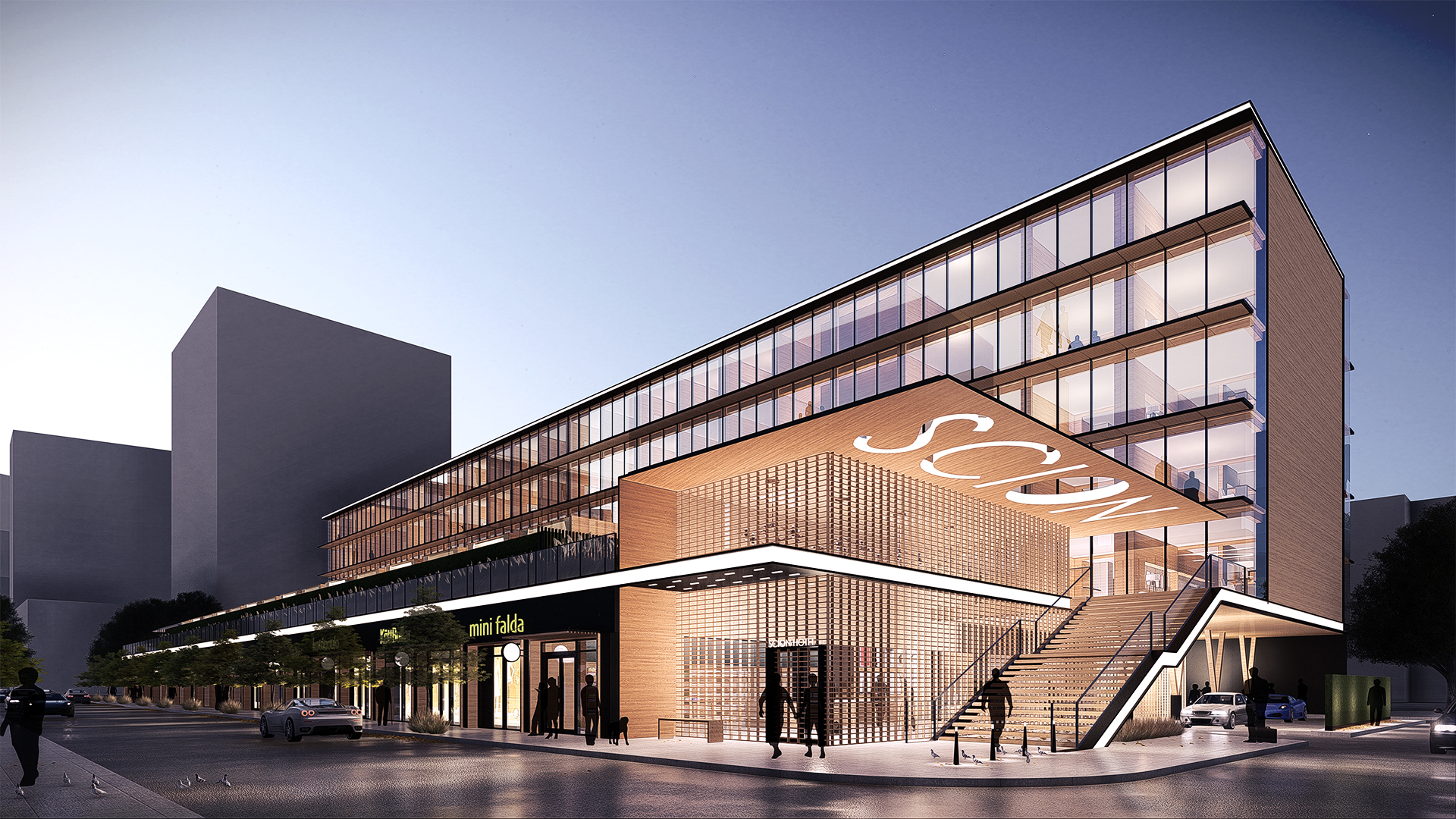Last September, Trump Hotels CEO Eric Danziger announced a new brand from the company called Scion—a nod to Trump's offspring who are helping lead Trump Hotels.
"We knew we needed to be in a new tier," Danizger said at the time. "This is not going to be a luxury product. We are not going to confuse the marketplace."
And while massive Trump hotels have dominated skylines in New York City and Las Vegas and New York for years, the first Scion seems poised to be a little bit smaller. Like, six stories. And don't look for it in Manhattan or Sin City—this property is poised to rise deep in the heart of Texas.
The First Scion
According to the Dallas Business Journal, the debut Scion hotel in the country will likely be based within a mixed-use Dallas development, and will have just 220 rooms over six stories. Alterra International, based in both Dallas and Istanbul, plans to build the $50-million project fronting St. Paul Street between Wood and Young streets, close to the City Hall. The land is currently a 40,000-square-foot parking lot. Alterra is buying the land from Hamilton Properties, a local developer. Founder and CEO Larry Hamilton told CNN that the closing is scheduled for the end of the summer.

"The Trump Organization wanted a four-star business hotel in Dallas," Mike Sarimsakci, founder and president of Alterra International, told the Dallas Business Journal. "They wanted to create a hotel that would attract young business travelers in the creative and technology sectors with a collaborative concept in the lobby." Sarimsakci said he never spoke with Donald Trump during the negotiating process for this hotel.
Last week, Danziger announced that the company had signed 17 letters of intent with potential owners for its new Scion hotel brand. Beyond Dallas, the domestic deals would bring the brand to cities like Austin, Texas; Cincinnati; Nashville, Tenn.; and New York.
Scion's Foreign Connections
The Dallas Scion will be funded by overseas financiers, Sarimsakci said, including partners in Turkey, Kazakhstan and Qatar. He would not share more information about those investors.
Sarimsakci also said that he had spoken with the Trump Organization about potential Scion projects in Turkey, Georgia and Iraqi Kurdistan, but those plans were dropped when Trump became president and the company announced a "moratorium" on overseas deals due to concerns over conflicts of interest concerns.
As such, the involvement of overseas financiers in the U.S. Scion properties could raise some concerns, especially given the location of the investors. Just a week ago, President Trump signed an executive order barring citizens of seven predominantly Muslim countries—Iran, Iraq, Libya, Somalia, Sudan, Syria and Yemen—entry into the U.S. for 90 days. He also suspended entry of all refugees to the U.S. for 90 days and barred Syrian refugees indefinitely.
As was noted at the time, the ban did not apply to all Muslim countries, and those it did affect seemed cherry-picked. For example, 15 of the 19 terrorists who committed the Sept. 11, 2001 terrorist attacks were Saudi, but Saudi Arabia was not included in the list. At one point, the Trump Organization incorporated several limited liability companies in preparation for an attempt to build a hotel in Saudi Arabia, but the company canceled these corporations in December. The UAE is also not included in the list, and the President has licensed his name to a Dubai golf resort and other developments in that region.
In Turkey, Trump has licensed his name to two luxury Istanbul towers. A Turkish company also manufactures a line of Trump-branded home furnishings. Trump’s most recent financial disclosure, filed in May when he was a presidential candidate, indicated that he had earned as much as $6 million in 2015 from those deals.
With the travel ban sparking massive protests around the country and the world, it will be interesting to see if investors from predominantly Muslim countries—like Turkey, Kazakhstan and Qatar—maintain their interest in the next generation of Trump's hospitality efforts. If funding from these wealthy nations suddenly dries up, will we see another executive order undoing the first one?
